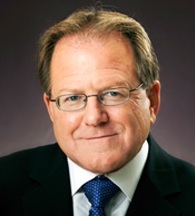With the FDA's all-clear under its belt, AMRI's once-troubled Burlington, MA, "money pit" is poised to push the Albany, NY, company into new markets, the company's new CEO reportedly told investors at the J.P. Morgan Healthcare conference last week. The former Teva executive said he's eyeing generics and high-tech drug delivery among potential expansion areas.
 |
| AMRI CEO William Marth |
The contract drug developer spent years and millions of dollars to fix problems at its fill-finish plant in the Boston suburbs. The plant had been under fire from the FDA since 2010, just after Albany Molecular Research Inc. ($AMRI) acquired it in a buyout of large-scale manufacturer Hyaluron.
By the end of 2012, the plant was contributing significant sums to AMRI's top line, the company disclosed in its annual report. The facility was serving customers, but it wasn't until November that AMRI founder Thomas D'Ambra announced the FDA's all-clear. On Dec. 31, D'Ambra swapped roles with AMRI chairman William Marth, a former Teva Americas CEO, stepping away from operations in a succession plan the company announced in September.
"The demand for fill and finish is really tremendous now in the U.S. It was unfortunate that we had a warning letter," particularly because other contractors had also been warned, Marth told investors at J.P. Morgan last week, according to Outsourcing-Pharma. "Since we've had that warning letter lifted, the demand for our product in Burlington has grown at a great rate."
AMRI's Burlington facility is tooled for fill and finish on injectable drugs. Marth said he believes that's an entry point to challenge competitors in new areas, according to the report.
"As pharma begins to look more and more at outsourcing, we believe we can extend that business both into patches, potentially DPIs, some oral solid dose, other areas," Marth told investors. "Now we are not looking necessarily to go head to head against Catalent, head to head against Patheon, but what we think we can do is add our CMO business on the higher-value high-technology products."
In addition, AMRI is looking to expand the roughly $127 million share it commands of the $14 billion generics market, Marth said, according to the report: "We've looked at a variety of areas in APIs we think we can excel in, cytotoxic, steroid, peptides, controlled substances. These are areas that we will look to focus on probably on in both an organic and inorganic basis."
- read the Outsourcing-Pharma article